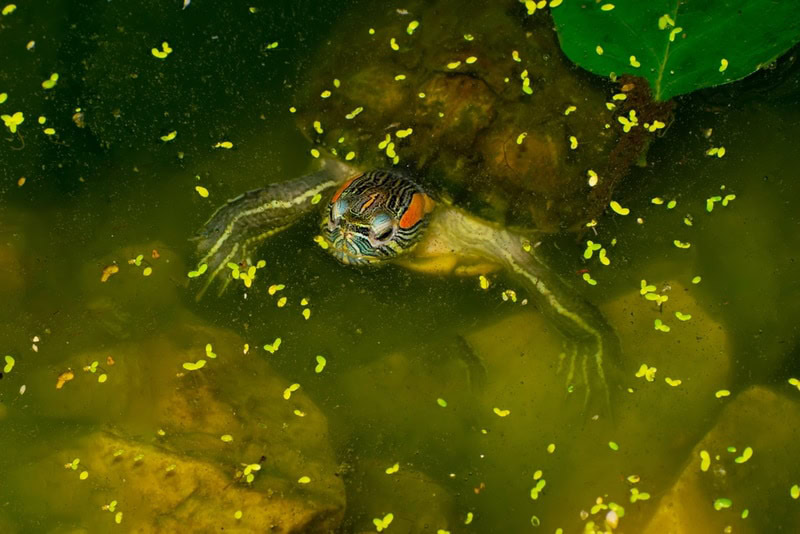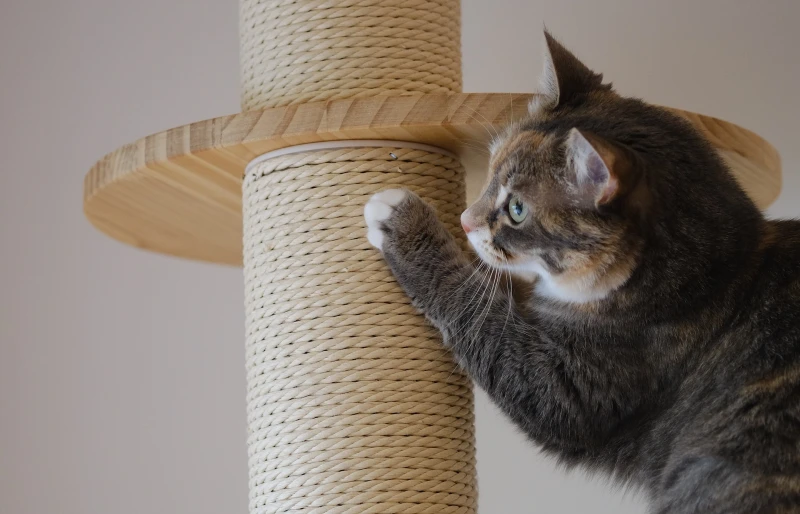VET APPROVED

The information is current and up-to-date in accordance with the latest veterinarian research.
Learn more »Click to Skip Ahead
Aquatic turtles can be excellent pets that are fun to keep, but for some people, it can get boring to look at the same singular animal in a tank, especially if they have lots of open swimming space. It can be tempting to add fish to the tank to add more movement and interest, and goldfish are often a top pick because they are inexpensive and docile. Will your turtle eat the goldfish you add to the tank, though? Yes, turtles will absolutely eat goldfish. In fact, some people purchase small feeder goldfish to intentionally feed to their turtles. Keep reading as we explain further.

Do Turtles Eat Goldfish?
Turtles are omnivores that will eat just about anything that can fit into their mouth, so your turtle is likely to eat any goldfish that is small enough to fit.
Even with larger fish, your turtle may snap at them and damage their fins. If your intention is to keep goldfish alive in the tank with your turtle, know that this is not advised for a couple of reasons.
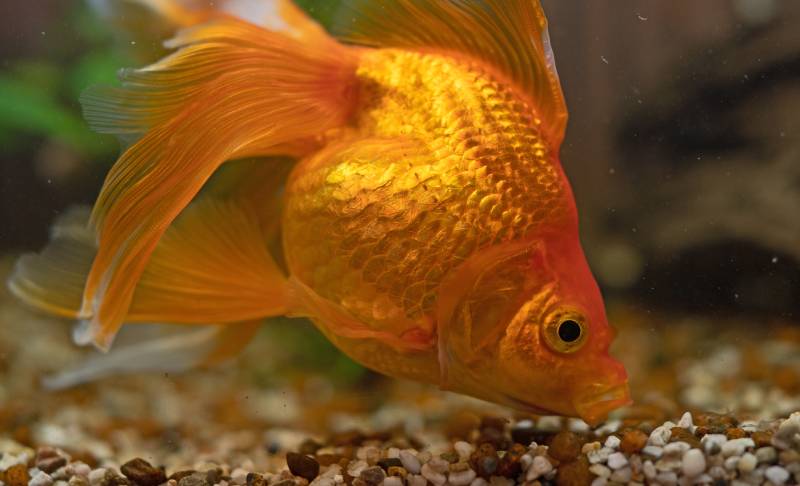

The 4 Reasons Why Goldfish and Turtles Shouldn’t Be Kept Together
1. High Bioload
If you already have a turtle, then you’ve probably already figured out that they’re messy animals that require quite a bit of environmental upkeep. Goldfish also produce a high bioload in their environment. This means that keeping goldfish and turtles together can result in poor water quality, and it can require a high level of maintenance that many people aren’t willing to commit to or able to provide. Keeping these two animals together requires a large tank with lots of water space, high filtration, and routine water parameter checks and changes.
2. Choking Risk
Did we mention that turtles will eat almost anything that fits in their mouth? That means that if your turtle can catch it, they’ll probably eat it. Unfortunately, some turtles may misjudge the size of a goldfish. They may successfully catch them and get them into their mouth but then not be able to properly move the goldfish down to the stomach. This can lead to choking, and if your turtle chokes, they can die. Goldfish also contain lots of small bones that can damage your turtle’s digestive tract.
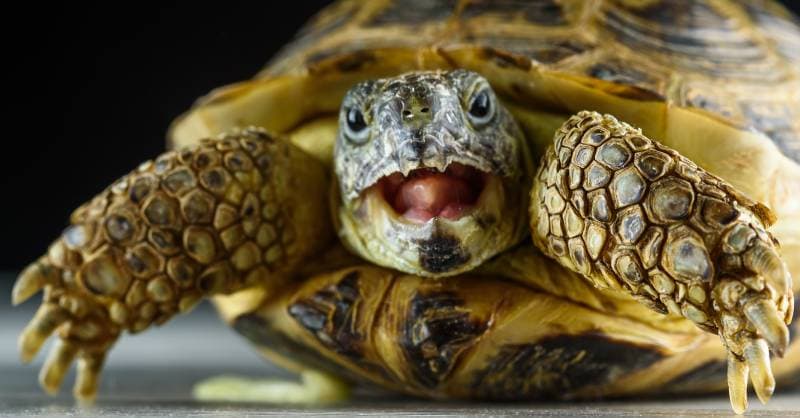
3. Infectious Potential
It’s no secret that new fish can carry parasites and diseases, which is why it’s recommended to quarantine new fish. Goldfish that are sold as feeder fish are often kept in poorer conditions than the average fish, leading to a higher risk of infectious potential. These fish may pass parasites and bacterial infections to your turtle. This is uncommon, but definitely a risk for your turtle.
4. Vitamin B1 Deficiency
Even though goldfish are a popular feeder fish for turtles, they can actually be harmful to your turtle over time. Goldfish contain an enzyme called thiaminase, and thiaminase has the ability to degrade thiamine or vitamin B1. If your turtle consumes large quantities of goldfish, there is a real potential for the consumed thiaminase to lead to vitamin B1 deficiency, or deficiency hypovitaminosis B1. Vitamin B1 deficiencies can lead to respiratory failure, which will result in death if left untreated.
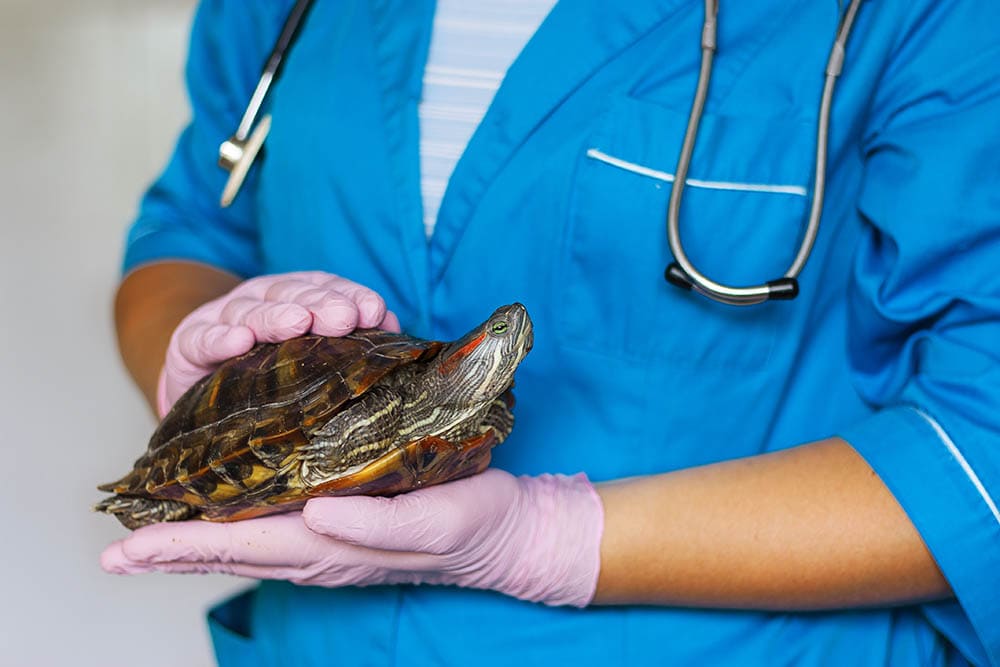

In Conclusion
Turtles will eat goldfish when given the opportunity, but there are reasons that you shouldn’t attempt to keep these two animals in a shared tank or use goldfish as a routine part of your turtle’s diet. From water quality problems to choking and toxin hazards, goldfish and turtles simply aren’t built to live together in a captive environment.
You Might Also Be Interested In:
Featured Image Credit: Anton Vakhrushev, Shutterstock
